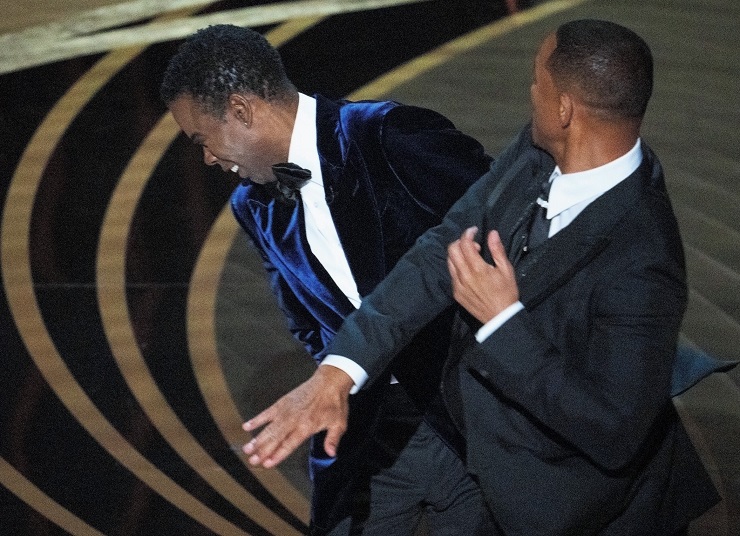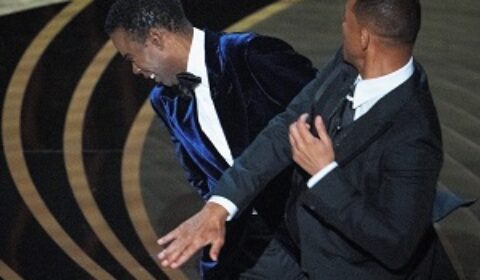FACE IT — STANDING UP FOR WHAT YOU BELIEVE CAN BE RISKY
TARA COLLUM | Contributing columnist
Cancel culture. What will the “right” or “left” cancel next?
It can be reductive and harmful to reduce shifting societal norms to a catch phrase. No one is ever “cancelled,” but careers can end when past deeds are no longer condoned by a new generation, or by sea changes in what is acceptable behaviour.
So, statues are taken down, and at tremendous expense roads are renamed. But not everyone is onboard with the changes, and sometimes we can agree, and sometimes we can’t decide on what to do with figures from the past who are now pariahs.
We can’t learn from our past mistakes if history is erased, but we can’t hold up as heroes those that committed unspeakable crimes, or whose past actions cause present day suffering.
People are multi-sided and complicated. On arguably one of the best nights of Will Smith’s life, when he was awarded the Oscar for best actor, he also took to the stage to slap Chris Rock across the face. Did his reaction to a joke take away from his achievement?
Assault is not an acceptable reaction to a joke. Jada Pinkett Smith suffers from alopecia and shaves her head as a result of hair loss. Chris Rock poked fun at her by asking if she will star in the sequel to GI Jane. Many believed that Rock was unaware of her health condition — except he had made a similar remark years before.
Not everyone will have the same reaction to a joke, but the joke itself seemed a tepid ribbing. An effort to include her because her husband was nominated. I would consider being compared to peak Demi Moore, where she played the first female US Navy SEAL, a huge compliment. People with alopecia, or those familiar with the history of criticism and racism entrenched around the treatment of Black women’s hairstyles would disagree.
But did it warrant a slap? Considering the context, no. People shouldn’t get out of their chairs and go on stage during an event. It’s disruptive and disrespectful to the audience and the production. Also, taking offence and slapping people publicly for their words is not a good precedent to set.
Chris Rock declined to press charges, but Will Smith will have to live with his Oscar win and the slap being forever associated.

There are many controversial figures, whose bad reputation and good deeds are compared in equal measure. Like Gravenhurst’s homegrown hero, Norman Bethune, whose name continues to churn controversy.
No doubt Dr. Bethune was a humanitarian. He was an early champion for the system of health care we enjoy today. He was a pioneering doctor and inventor of many surgical instruments, and he innovated many life saving battlefield mobile hospital techniques.
Bethune was also held up as a legend to the people of China by chairman Mao. Bethune died in 1939, before the worst atrocities of the Cultural Revolution were committed, but his association with Mao soured his legacy. The argument remains to this day that the Bethune family home was turned into an attraction solely to gain favour with the Chinese government. And there are three statues of him in town.
People are nuanced and complicated, and we shouldn’t be too quick to rush to condemnation. We can disagree with and punish behaviour, but in the age when everyone has their own personal soapbox to jump on and broadcast their every thought twenty-four seven, we need to take more care before jumping to lasting conclusions.
The world of music recently suffered the loss of Foo Fighter drummer Taylor Hawkins at only 50 years of age. While some media outlets were quick to jump on rumour or conjecture, other newspapers and sites waited to get the full story before rushing to release his cause of death.
There is public interest in a celebrity rock star, like Hawkins, but there should also be respect for the famous as people with friends and family reeling and devastated over an unexpected tragedy.
If we want to be recorders of history or judges of society with our social media feeds, we need to bear responsibility for the outcomes on our daily lives, like how to punish misdeeds so that bad behaviour isn’t repeated, and to decide how to best honour people and their accomplishments.
There is a lot of fact checking, reporting, interviewing, and background checking that goes into getting the full picture of any story. While we are free to comment, we also need to be mindful of how our reactions work to shape the story, now and into the future.


April 7, 2022 @ 2:12 pm
This is one of the best columns I have read covering not only “the slap” but the rewriting of history and its implications. Excellent writing, Tara.